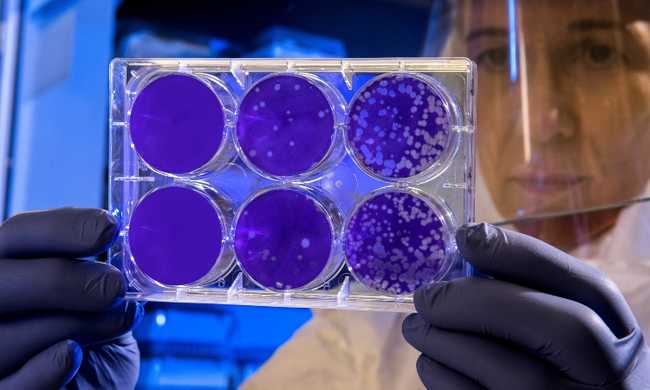Hyperthyroidism and hypothyroidism: what's the difference?
The main difference between hyperthyroidism and hypothyroidism is the way in which the level of thyroid hormone production is impaired

Lucija Ros image in Unsplash
Hyperthyroidism and hypothyroidism are different diseases, but both affect the same gland, the thyroid - responsible for maintaining the function of important organs such as the heart, brain, liver and kidneys.
In hyperthyroidism, also known as "overactive thyroid", the gland in question starts to produce excessively hormones, while in hypothyroidism the production is reduced.
The first is more common among women aged 20 to 40 years, and the second among women over 60 years of age. Both, however, can occur to anyone at any age, even newborns - conditions known, respectively, as congenital hyperthyroidism and congenital hypothyroidism.
Causes
Both hyperthyroidism and hypothyroidism have several causes and are more likely to happen among relatives of people who have thyroid problems. However, in adult hyperthyroidism, the most common cause is Graves' disease - the immune system attacks and damages the thyroid, causing it to increase, stimulating the production of excess T3 and T4 hormones. It is a chronic (long-term) disease and occurs more often in people who have relatives with a history of thyroid problems.
In hypothyroidism, the most common cause is Hashimoto's disease, in this situation, as well as in hyperthyroidism, the immune system attacks the thyroid, impairing its functions, but what happens is a decrease in hormone production.
Some less common causes of hyperthyroidism are:
- Thyroid nodules: Tumors in the thyroid gland, which can secrete excess thyroid hormone.
- Subacute thyroiditis: A painful inflammation of the thyroid typically caused by viruses.
- Lymphocytic thyroiditis: a non-painful inflammation caused by infiltration of lymphocytes (a type of white cell in the immune system) into the thyroid.
- Postpartum thyroiditis: thyroiditis that develops soon after the end of pregnancy
Less common causes of hypothyroidism are:
- Radioactive iodine treatment or thyroid surgery (which are used to treat other thyroid problems)
- Malformation during pregnancy (cases in which the baby's thyroid does not develop properly)
Hyperthyroidism symptoms
In the onset of hyperthyroidism or in its milder form, symptoms are not easily recognizable. Sometimes there may be a feeling of discomfort and weakness. However, the disease is potentially serious and can be fatal.
In more developed cases the symptoms are:
- Acceleration of heartbeats (more than 100 per minute);
- Irregularity in heart rhythm, especially in patients over 60 years of age;
- Nervousness, anxiety and irritation;
- Shaking and sweating hands;
- Loss of appetite;
- Hot temperature intolerance;
- Sweating
- Hair loss and/or scalp weakness;
- Fast growing nails, with a tendency to peel;
- Weakness in muscles, especially in the arms and thighs;
- Loose bowels;
- Weight loss;
- Irregular menstruation;
- Increased probability of miscarriage;
- Stare;
- Eye protrusion (bulging), with or without double vision (in Graves' disease patients);
- Accelerated loss of calcium from bones, with increased risk of osteoporosis and fractures.
Hypothyroidism symptoms
- Depression;
- Deceleration of heart rate;
- Constipation;
- Irregular menstruation;
- Memory failures;
- Excessive tiredness;
- Muscle aches;
- Dry skin and hair;
- Loss of hair;
- Feeling of cold;
- Weight gain.
There may be an increase in cholesterol levels and consequent heart disease if those affected by hypothyroidism do not undergo treatment. In more severe cases, myxedema coma can occur, an uncommon but potentially lethal clinical situation. In this situation, the body presents physiological adaptations (to compensate for the lack of thyroid hormones) which, in case of infections, for example, may be insufficient, causing the person to decompensate and go into a coma.
Diagnosis of hyperthyroidism
To diagnose hyperthyroidism, physical and blood tests are performed. The disease is confirmed when T4 and T3 levels are higher than normal and the TSH level is lower than the reference.
To determine the type of hyperthyroidism, a radioactive iodine uptake test is ordered to measure how much iodine is absorbed by the thyroid. There may also be a request for images of the thyroid in order to verify its size and presence of nodules.
Diagnosis of hypothyroidism
Hypothyroidism is diagnosed based on blood tests that will measure the levels of thyroid stimulating hormones - TSH and T4. The disease is confirmed when TSH levels are high and T4 levels low. However, in milder or early cases, TSH will be high, while T4 may be normal.
When the cause of hypothyroidism is Hashimoto's disease, tests can detect antibodies that attack the thyroid.
In newborns, the thyroid exam is called the "Little Foot Test" and must be performed between the third and seventh day of birth. This is because, if sick babies are not treated, there may be delay in mental development and growth.
Hyperthyroidism treatment
The treatment of hyperthyroidism depends on each case. Age, type of hyperthyroidism, allergy to medication (used to treat hyperthyroidism), disease severity, and pre-existing conditions are the main factors that determine which treatment will be appropriate.
The drugs used will basically stop the thyroid from using iodine, which will reduce the levels of thyroid hormones circulating in the blood. As iodine is essential for the synthesis of T3 and T4, in its absence there will be the desired reduction in the production of thyroid hormones.
Another way of treating hyperthyroidism is through the use of radioactive iodine. This treatment cures the condition, but it usually completely destroys the thyroid, making the person need to take thyroid hormones for the rest of their lives.
Surgical removal of the thyroid is another permanent solution, but it poses a risk of damage to the parathyroid glands (which control calcium levels in the body) and the laryngeal nerves (vocal cords). This type of treatment is only recommended when medications or radioactive iodine therapy are not appropriate.
In the treatment of hyperthyroidism, beta-blocking drugs can also be used. These medications (such as atenolol) do not lower thyroid hormone levels, but they can control severe symptoms such as a fast heart rate, tremors, and anxiety.
If you have ever been treated for hyperthyroidism or are being treated, remember to see your doctor regularly so that the condition is monitored. Thyroid hormone levels need to be normal and your bones must be getting enough calcium to stay strong.
Hypothyroidism treatment
The treatment of hypothyroidism used by conventional medicine is the daily intake of levothyroxine in fasting (half an hour before the first meal of the day), in the amount prescribed by the doctor, according to each organism.
Levothyroxine reproduces the functioning of the thyroid, but for the treatment to be effective, its use must follow the doctor's prescription.
Sources: Ministry of Health and Brazilian Society of Endocrinology and Metabolism










